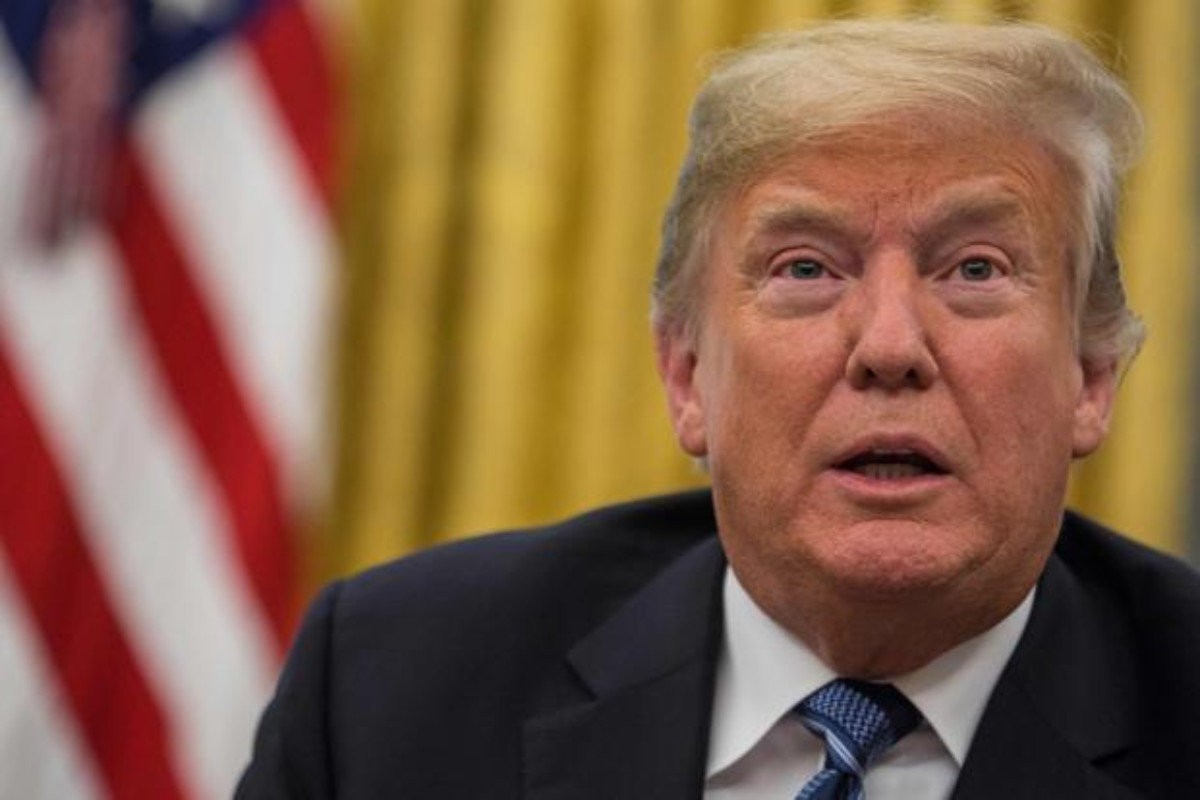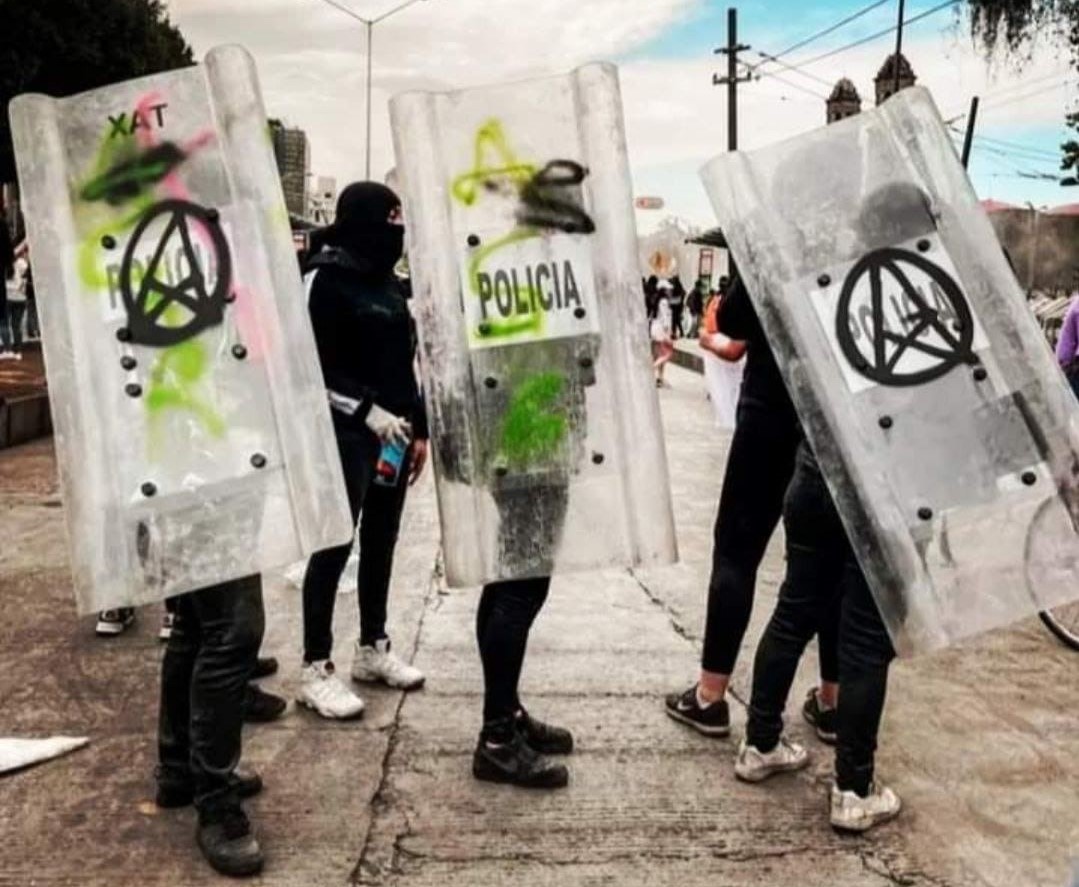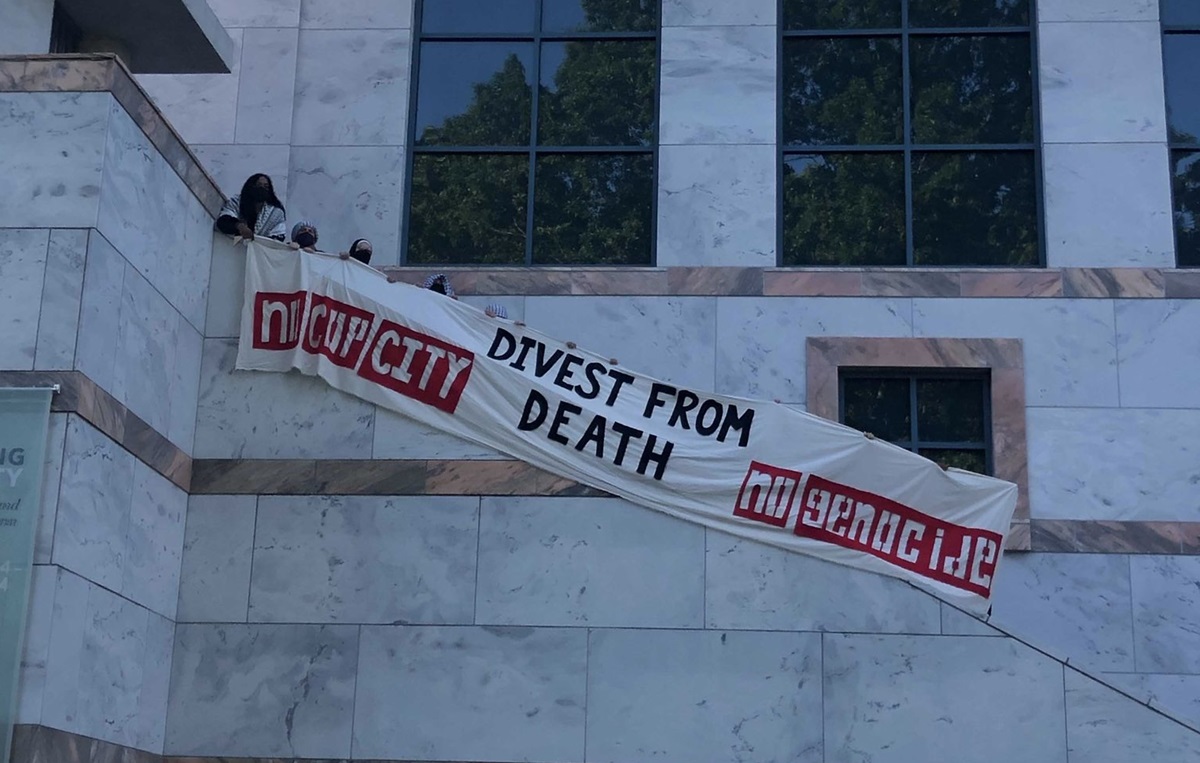Filed under: Analysis, Anarchist Movement, Capitalism, Featured

From the latest issue of the long running Philadelphia publication Anathema, this article focuses on the looming and growing possibility of an economic crash.
Recession is on the horizon, but pundits and politicians are downplaying and distorting it for economic and political purposes.
President Trump is still touting his economic achievements, but has also now started threatening that it could all go away if we fail to keep him in power after 2020. In June, he tweeted: “If anyone but me takes over in 2020 … there will be a Market Crash the likes of which has not been seen before!”
Many mainstream economists are still citing indicators like low unemployment and job growth to suggest that the economy will remain stable. Others, however, warn that one of the many realities these indicators ignore is the lack of wage increases in recent years. A new survey from bankrate.com showed that over 55% of Americans are making the same amount of money — or less — than they were in 2007. That is, they’re earning less than they were before the so-called Great Recession, from which we’ve allegedly been experiencing a healthy recovery under Trump.
According to a July report from CUNA Mutual Group, middle-class Americans are less optimistic about their economic prospects than they were only six months ago. The poll asked those surveyed to grade their chances of “achieving the American dream;” the majority downgraded their chances to a “C,” down from a B- in the fall.
In the early 1970s, global capitalism entered into a profitability crisis which has lasted to this day. The capitalist system dealt with this and sustained itself — as it always does — by crushing its workers further. One recent instance of this is the Trump administration’s corporate tax cuts, which helped barely sustain the economy by saving corporations money. That money has been used to shore up corporations’ investments rather than paying their workers more, so what Trump is claiming as the most recent economic recovery has not actually given most ordinary people any relief.
A slowdown is now widely expected. In mid-July, Federal Reserve Chair Jerome Powell told Congress that “uncertainties around trade tensions and concerns about the strength of the global economy continue to weigh on the U.S. economic outlook.”
Low interest rates since the last recession have formed many bubbles that will inevitably pop. The Fed’s inflation of the U.S. stock market has caused stocks to rise faster than their actual earnings, meaning that at this point the market is extremely overvalued. The market will inevitably correct itself, and this time recovering the economy will be particularly difficult, for several reasons. What commentators are not saying — but what some of the information they’re putting out implies — is that it is hard to imagine how the economy will recover at all.
The Fed’s inflation has created a massive bubble in household wealth — meaning this crash will significantly affect everyone, with potentially devastating consequences. Politicians will have a hard time getting consumers to go shopping again if they have nothing to spend and have exhausted their credit.
More significantly, government debt is now at an all-time high — 80% of total GDP — which means the state will have very little ability to bail out the economy in a crisis. This means the crisis will endure and that any recoveries will be minor and benefit very few people (as after 2007). The U.S.’s situation is very different now, though, than it was in 2007 when debt was only at 62%. What little recovery happened has happened because of further debt growth. Another recession will ramp up federal debt even more, to an extent that could produce a sovereign debt crisis.
This debt crisis extends beyond the U.S. In order to deal with capital’s profitability crisis, the world has been on an unprecedented debt binge in the past several decades. In almost every major economy, the country’s debt has grown much faster than its underlying GDP for decades now. After the Great Recession, the global economy was carried in large part by China taking on a massive amount of debt. China is now tapped out and facing a similar potential crisis. No other country is in a position to carry the economy after this coming crisis like China did.
As the atrocities of capitalism become more apparent and the system itself is potentially on the brink of collapse, socialism seems to be back on the table, represented by mass organizations like the Democratic Socialists of America (the DSA) and by leftist politicians like Bernie Sanders and Alexandra Ocasio-Cortez. As capitalism’s crisis intensifies, one of many things we will have to beware of next is socialism.
The political spectrum moving to the left is not a progressive step leading in the right direction. It’s a scrambling maneuver by power to restructure itself in such a way that preserves underlying systems that are authoritarian at their core. Socialists do not have any real answers to the problems of capitalism and climate change. They will instead present only obstacles in the way of our collective freedom.
While the conditions we’re in often seem overwhelmingly hopeless, this economic forecast asks us to think longterm. Given the realities of the quickly escalating ecological collapse as well as a major economic crisis ahead of us, conditions are changing, and rapidly. Many types of action and intervention might seem unstrategic or impossible now, but may become necessary soon enough. New wars are on the horizon.




